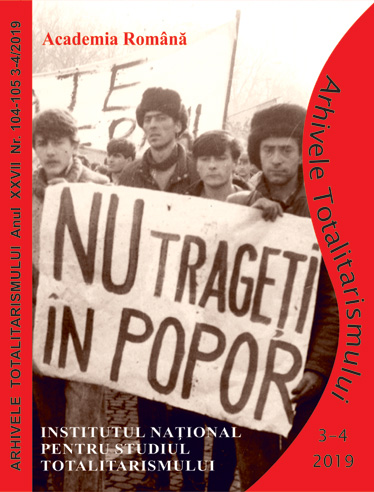Sfârşitul cazului Pătrăşcanu. Între interesele interne şi „sfaturile” Moscovei, 1952-1954
The end of Pătrăşcanu’s case. Between domestic interests and Moscow’s „advice”, 1952-1954
Author(s): Dan CătănuşSubject(s): History, Political history, Recent History (1900 till today), Special Historiographies:, WW II and following years (1940 - 1949), Post-War period (1950 - 1989), History of Communism
Published by: Institutul National pentru Studiul Totalitarismului
Keywords: Lucreţiu Pătrăşcanu; Stalinist investigations; repression; Stalinist trials; Romanian-Soviet relations;
Summary/Abstract: This article presents the endeavours of the Romanian Workers’ Party leadership to get Moscow approval for closing down the Pătrăşcanu case. As early as November-December 1952 the first information about the imminence of concluding the investigation and the beginning of the trial had been sent to the Soviet representatives. The endeavours had been resumed in July 1953 a few months after Stalin’s death. The new Soviet leadership postponed to answer and asked for further details. In the end, on March 31, 1954, the Soviets agreed to proceed with the trial but left the sentencing to the Romanian leadership. However, the lack of Soviet implication was only apparent. The Soviets shared the conviction that Pătrăşcanu was guilty and knew he was to be sentenced to death. Under Moscow’s influence, Gheorghiu-Dej renounced to his initial intention to organize a wide publicized open trial. In the end, he agreed to a closed trial, following the model of Beria’s trial, in which the main defendants were executed immediately after it.
Journal: Arhivele Totalitarismului
- Issue Year: XXVII/2019
- Issue No: 3-4
- Page Range: 272-295
- Page Count: 24
- Language: Romanian
- Content File-PDF

